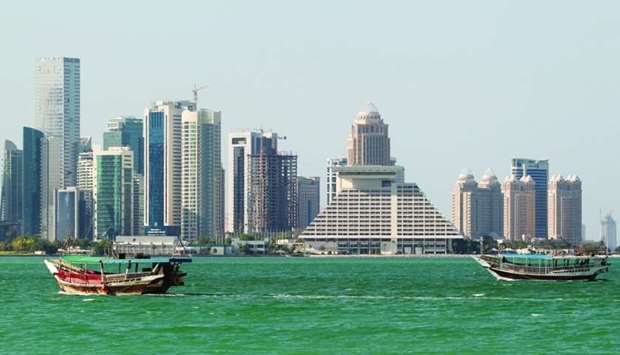On June 28, three weeks after the siege countries imposed economic blockade on Qatar, Moody's rating committee reviewed the situation, thus came to the conclusion that the issuer's economic fundamentals, including its economic strength, have not materially changed.
The committee also found that the issuer's susceptibility to event risks has not materially changed, said Moody's, reaffirming the ‘Aa3’ long-term issuer and senior unsecured debt ratings on Qatar, factoring in Doha's "sizeable" net asset position and "exceptionally" high levels of wealth.
"The rating affirmation at 'Aa3' takes into account a number of credit strengths embedded in Qatar's credit profile and reflects Moody's view that the sizeable net asset position of the Qatari government and exceptionally high levels of wealth will continue to provide significant support to the sovereign credit profile for the time being," it said.
Moody's also acknowledges that as long as hydrocarbon exports are not disrupted, the ongoing dispute would not affect the overwhelming majority of foreign exchange receipts in the current account balance and the bulk of government revenues.
Highlighting that the government has sizeable asset buffers, including roughly $35bn in net international reserves at the Qatar Central Bank and more than $300bn of assets managed by the Qatar Investment Authority (QIA); it said they will likely continue to grow in nominal terms, and the government's net asset position, calculated as total assets at the QIA less outstanding government debt, would stay above 100% of GDP (gross domestic product) over the coming years.
The rating agency believes that the Qatari government's resources together with liquid foreign assets in the banking system – amounting to about $30bn as of May, according to its estimates – strongly mitigates against the rollover risks (due to economic blockade) and credibly support the pegged exchange rate regime.
Qatar's "exceptionally" high levels of wealth and one of the largest hydrocarbon endowments globally, together with the leading position Qatar occupies in the global liquefied natural gas (LNG) market, are further credit strengths.
Qatar, which now accounts for one-third of the global LNG market, is enhancing its LNG production by 30% to 100mn tonnes per annum with Qatar Petroleum announcing the doubling of the output from its new gas project coming up south of North Field, which is the world's largest non-associated natural gas field.
According to the International Monetary Fund, Qatar's GDP per capita in purchasing power terms stood at $127,660 in 2016, by far the highest in Moody's rating universe.
"This mitigates the social stability effects from the recent political dispute and associated import restrictions/potential increase in prices for certain goods and services for households," it said.

High-rises are seen on the Doha Corniche. The blockade by the siege countries have not ,materially, changed Qatar's macro fundamentals as well as institutional and finance strengths, according to Moody's, a global credit rating agency.
The political and economic blockade by the siege countries have not "materially" changed Qatar's macro fundamentals as well as institutional and finance strengths, according to Moody's, a global credit rating agency.

